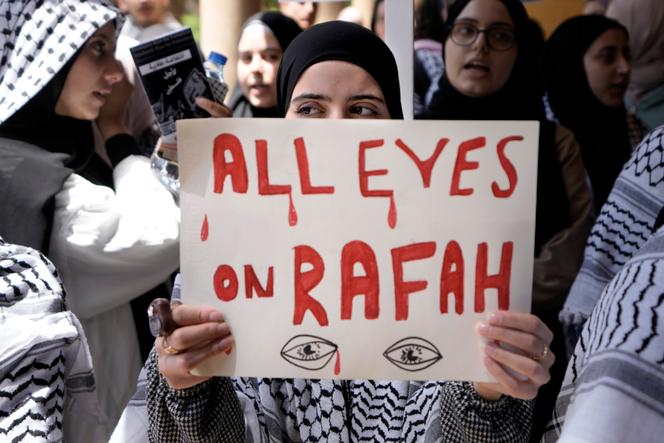


It's the rebirth of an old kinship. Since the start of the war in Gaza, launched in the wake of Hamas' deadly attack in southern Israel on October 7, 2023, the prestigious American University of Beirut (AUB) has been at the forefront of pro-Palestinian academic initiatives in Lebanon. In so doing, the Bliss Street institution is rekindling its rich militant past, back when it used to spur the Arab intelligentsia on the Palestinian question.
On June 20 and 21, the AUB will host the conference "Justice for Gaza," designed to consider avenues to rebuild the medical sector in the besieged enclave with the help of regional doctors. Earlier this month, the British-Palestinian surgeon Ghassan Abu Sittah, who spent a month and a half in the hell of Gaza at the start of the war, was invited to the verdant campus. Along with the Indian writer Arundhati Roy, he was one of three personalities awarded honorary doctorates at this year's student graduation ceremony in the university stadium.
The doctor, whom Germany turned away in mid-April and banned from receiving a Schengen visa for a year (a measure against which he has since won his case), practiced for ten years, between 2011 and 2021, at the American Hospital (AUBMC), attached to the university. "Ghassan Abu Sittah is a hero: he took part in several conflicts in Gaza and treated war-wounded from Syria and Iraq at AUBMC," said AUB president Fadlo Khuri. "This year, we wanted to highlight personalities who express empathy for Gaza and the Palestinians and whose actions have global resonance."
Arundhati Roy's words at the ceremony did not go unnoticed at this university which receives substantial American funding: Condemning the "genocide" in Gaza and the "apartheid" against Palestinians "of which Israel is guilty," she argued that the American government seemed "to be under Israel's legal occupation" and criticized Washington's support "with arms and money" for the Israel state. The Indian activist was applauded.
And yet, the AUB is no nest of revolutionaries. As a bridge to the West, the school prides itself on its liberal tradition. Since its founding in the 19th century by an American Protestant missionary, it has trained the elites of Lebanon and the Middle East and is a place of diversity. "In the 1930s, before the Nakba [the forced exodus of Palestinians when the State of Israel was created in 1948], the majority of students were Palestinians," recalled Khuri. The school, located in Hamra, west of Beirut, was a crucible of Arab nationalism.
You have 57.52% of this article left to read. The rest is for subscribers only.
